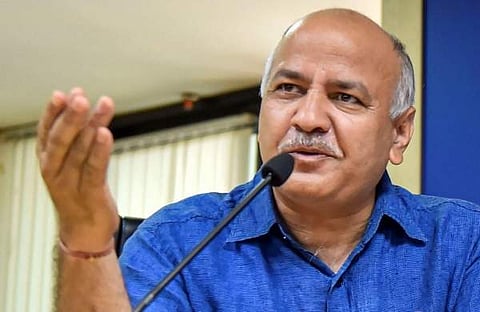

The Delhi government launched the Deshbhakti Curriculum from nursery to class 12 - across all public schools in the national capital on September 28 - the 114th birth anniversary of young freedom fighter Bhagat Singh. The main aim of this educational programme is to inculcate the feeling of patriotism in students from a young age and make them feel proud of their nation, people and culture. Post the 'Happiness Curriculum' and 'Entrepreneur Mindset Curriculum', this is Aam Aadmi Party (AAP)-led government's third such experiment.
As per Deputy Chief Minister and Education Minister Manish Sisodia, this curriculum will bring in a "sense of belongingness" amongst students - the future of India.
So, what is this curriculum all about?
Aim of Deshbhakti Curriculum:
*To inculcate the feeling of love, respect and pride for the country in the mind of every child.
*To make every child aware of his responsibility and duty towards the country.
*To ensure that they should not only become sensitive to the various problems of the country but also take a pledge to solve them.
*To develop children's sense of belonging towards the country.
*To develop a sense of sacrifice and respect for those who give up in every child
*To help them realise that patriotism should not be reserved for some special occasions like Independence Day and Republic Day.
*To help children realise that even our small actions help our nation grow.
Constituents of Deshbhakti Curriculum:
*Deshbhakti Dhyaan: In the beginning of the class of patriotism, children will practice mindfulness for 5 minutes and focus their attention on the country. They will take a pledge that they will respect their country and will express their gratitude by remembering five patriots daily.
*Deshbhakti Diary: Children will maintain a reflective journal to pen down their personal thoughts and feelings along with their learnings, reflections and experiences related to the activities, discussion and homework under this curriculum.
*Classroom Discussion: Teachers will facilitate a group and individual discussion on the daily topics in their 40-minute class. The children will be encouraged to speak their minds and listen to others. This activity will help children learn to express themselves and that others may have a different opinion.
*Homework: Main questions based on class discussion will be given to children. They will be required to talk to three adults, one from a family and two others outside of family (relatives or friends) and note down their viewpoint.
*Group Discussion and Reflection: Group discussions based on the homework will be carried out on a daily basis for reflection.
*Class Activity: Children will be required to express their understanding of a subject discussed in the class via speaking, writing or any other creative medium. This will help them develop their understanding.
Subject matter for Class 6-8:
*Understanding whether a child loves his/her country
*What does it mean to love one's nation
*To make children understand what does a nation mean to them and what does it mean to love one's country
*To be able to express their love and respect for the country in their own words
Subject matter for Class 9-12:
*Understanding the concept of a nation
*Meaning of loving and respecting one's country
*Ability to express the difference between loving and respecting one's nation
*Ability to tell which of their acts show respect to their country
Do's and Don'ts for teachers:
*Read the chapters carefully before teaching and understand its objectives
*Jot down the main questions on the board and ask students to answer them
*Give them time to think about the questions
*If students are unable to answer, then use prompts to guide them in the right direction
*Encourage every child to participate in the discussion, accept every child's answer without any discrimination
*Don't label children's answers 'right' or 'wrong'
*Don't answer children's questions, allow them to develop their understanding
*Listen to the children attentively and appreciate their efforts
*Provide a proper space for children to share their thoughts
*On sensitive topics, don't give your opinions. Let children reach their own conclusion
*Encourage children to share their homework in the classroom. If someone is lagging behind, give that student some extra time
Evaluation:
No formal examination or grading system has been made mandatory in the programme. Instead, a 360-degree evaluation on the basis of self-assessment, peer assessment and assessment by the teachers will be done. The curriculum will emphasise observing and assessing development of values, behaviour and actions.
